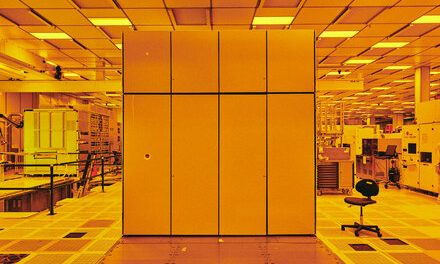One of the most pressing crises to hit modern industry is the ongoing shortage of semiconductors or computer chips across the globe. It’s a crisis that threatens a diverse range of fields, including the automotive sector, those manufacturing medical devices, and even the food and beverage industry.
However, a number of cities across the United States see an opportunity within this scenario. The need to increase the production of chips within the country to meet the demand has prompted these communities to lure in companies specializing in semiconductors to set up shop within their vicinity. Indeed, that’s something that could be a massive boost to local economies.
Some towns in Texas, Arizona, and upstate New York are trying their best to entice South Korean tech giant Samsung to build a semiconductor plant on their premises, offering millions of dollars in tax rebates and other incentives.
For example, the Texan town of Taylor, 40 minutes northeast of Austin, is working double time to get Samsung to build their $17-billion plant on their territory. But it remains to be seen whether Samsung will bite.
The US federal government has considered this an economic imperative which also has some impact on national security. Indeed, it has been encouraging some of the world’s biggest high-tech component makers to set up shop in North America.
But some experts say this is just the beginning of a potential chip boom in the United States. The Senate recently passed a bill that will give semiconductor companies a whopping $52 billion in subsidies – and this has the potential to become the country’s largest-ever industrial policy investment. However, the House has held off its consideration of the matter, despite several state governors having cited the bill as a tool for the further growth of the national economy.
At present, the US only handles 12% of the total global semiconductor production industry. Legislators opine that this puts the economy into an awkward, even precarious situation, as there are fears that China is now pushing to increase its control of the global semiconductor market. That said, one cannot blame individual states for lurching towards a bigger share of the global scene, especially if it keeps the US away from a technological disadvantage.
Numerous critics have said that the massive funds being spent to lure in these global companies should be allocated to more important matters such as infrastructure and the improvement of the public school system. But for those living in towns like Taylor, the potential economic boom these companies may bring to their communities makes it a risk worth taking.














